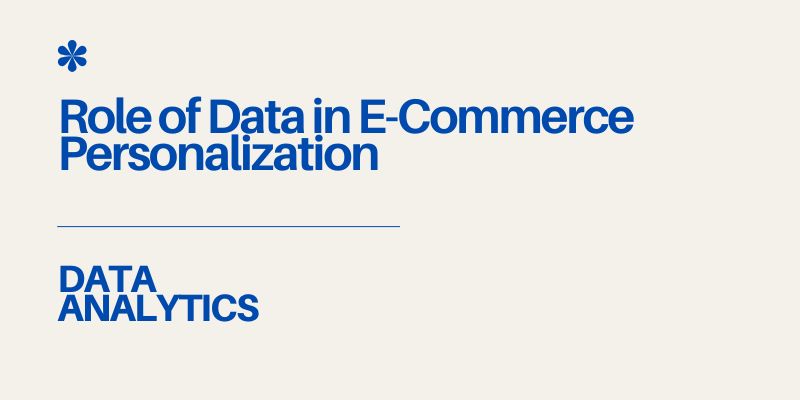
E-commerce personalization is no longer a luxury but a competitive necessity. As consumers become more selective, brands that deliver tailored experiences achieve higher engagement, stronger loyalty, and better conversion rates. At the heart of this transformation lies data analytics. For those looking to build skills in this field, enrolling in a Data Analytics Course in Hyderabad at FITA Academy can provide a strong foundation. By gathering, examining, and responding to customer information, e-commerce platforms can create experiences that seem specifically tailored for every shopper.
Understanding E-Commerce Personalization
E-commerce personalization involves customizing content, product suggestions, and user experiences according to customer behavior and preferences. This includes things like showing different home page banners to returning users, recommending products based on browsing history, or sending targeted email campaigns. Without data, this level of customization would be impossible to achieve at scale.
How Data Fuels Personalization
Data analytics powers every stage of e-commerce personalization. It begins with collecting data from various customer touchpoints, including website clicks, purchase history, cart activity, and even social media interactions. This raw data is then processed and transformed into actionable insights. For instance, analytics can reveal which products a user frequently views but never purchases. This pattern might suggest that the customer is interested but unconvinced, prompting the system to show discount offers or reviews to increase conversion. Similarly, browsing behavior can help segment customers by interests, allowing for personalized product recommendations that are more likely to resonate.
Types of Data Used
There are several types of data used in e-commerce personalization:
- Demographic Data: Age, gender, location, and language preferences
- Behavioral Data: Browsing history, click patterns, and time spent on pages
- Transactional Data: Purchase history, order frequency, and payment methods
- Feedback Data: Ratings, reviews, and survey responses
Each of these data types provides a unique angle for understanding customer intent. When combined, they offer a 360-degree view of user behavior that enables highly accurate personalization. Professionals looking to master these skills can benefit from enrolling in a Data Analyst Course in Pune, where they can learn how to work effectively with diverse data sets to drive meaningful insights.
Analytical Techniques That Drive Personalization
Several data analytics methods help turn raw data into personalized experiences:
- Segmentation Analysis: Grouping users based on shared characteristics, such as first-time visitors or high-spending customers.
- Predictive Analytics: Using past behavior to predict future actions, such as what a customer is likely to buy next.
- Association Rules: Identifying products that are often bought together to improve cross-selling.
- Customer Lifetime Value (CLV) Analysis: Estimating the long-term value of customers to tailor offers accordingly.
These methods allow businesses to go beyond surface-level personalization and deliver deeply relevant content to each individual shopper.
Real-World Impact on E-Commerce Performance
When done right, data-driven personalization has a measurable impact on business performance. It improves click-through rates, increases average order value, and reduces cart abandonment. For example, personalized product recommendations based on real-time data can significantly shorten the path to purchase. Meanwhile, personalized email campaigns tend to have higher open and conversion rates than generic messages. This emphasises the crucial role of data analytics across various industries, including e-commerce, where leveraging data effectively can drive both immediate and long-term results.
Another important benefit is customer retention. When shoppers feel that a brand understands their needs, they are more likely to return. Data analytics makes it possible to nurture this sense of connection at scale, turning one-time buyers into loyal customers.
Balancing Personalization with Privacy
While data is essential for personalization, businesses must also respect user privacy. Regulations such as GDPR and CCPA mandate that businesses be clear about their data collection practices and provide users with authority over their personal information. Ethical data analytics ensures that personalization does not come at the expense of trust. Clear communication and responsible data use should always be part of the strategy.
Data analytics plays a central role in enabling e-commerce personalization. From gathering insights to predicting customer behavior, data helps online retailers create experiences that are not only relevant but also impactful. For those interested in developing these skills, enrolling in a Data Analytics Course in Gurgaon can be an important move toward establishing a successful career in the industry. As consumer expectations continue to rise, leveraging data effectively will be the key to standing out in a crowded digital marketplace.
